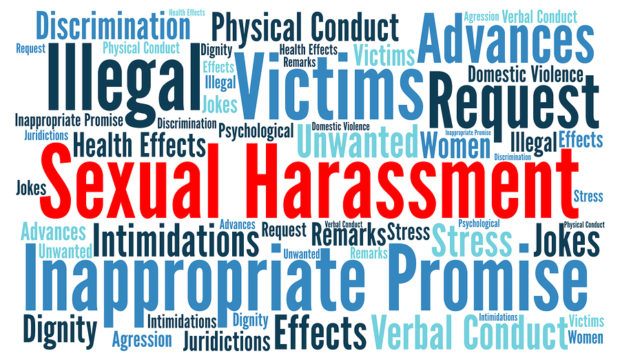Perceptions among insurance industry employees and executives about what sexual harassment entails aren’t clear cut. Many also differ as to the extent, or existence, of the problem.
Executive Summary
This is Part 4 of a Carrier Management four-part series looking at sexual harassment in the property/casualty insurance industry. This installment shares the results of CM’s survey—in which 76 percent of respondents said they’ve experienced sexual harassment while working in the insurance industry—as well as reader reactions that represent both sides of the issue.At the same time, a Carrier Management survey earlier this year and its 267 responses revealed that many who work in the property/casualty insurance industry have experienced some form of harassment. That’s whether they work for agencies, carriers, third-party administrators or some other part of the P/C insurance industry.
One way perceptions about sexual harassment differ: A small number of respondents said they were not harassed, even though they experienced incidents that the survey identified as forms of sexual harassment.
For example, 30 respondents who said they experienced inappropriate humor and 16 who dealt with suggestive, obscene gestures said they had not ever been harassed. Sixteen respondents stated they faced sexual innuendoes made about their appearance, and eight said they confronted unwanted physical contact, but they also said they had not experienced sexual harassment.
Still, a solid majority of respondents said they’ve dealt with sexual harassment in their insurance industry careers.
About 76 percent of respondents said that they’ve experienced sexual harassment while working within the insurance industry, according to the survey. Breaking it down, 49 percent of respondents who said they’ve experienced harassment are from agencies, 40 percent from carriers and 11 percent from other/third-party administrators.
Most were women—89 percent of respondents who said they have been harassed at some point in their career were female.
Sixty-eight percent of respondents over age 40 said they’ve experienced sexual harassment in their insurance industry jobs. The largest age group to respond in the affirmative are those aged 51-60, with 24 percent saying they have been harassed. On the other hand, only 2 percent of employees aged 18-25 said they’ve been harassed in their jobs, and 7 percent of those aged 26-30 answered affirmatively.
Respondents who said they have experienced sexual harassment most often cited examples including inappropriate humor or joking in their presence, sexual innuendoes made about their appearance, persistent flirting, unwanted physical contact, and leering or obscene gestures.
Strong Reactions on Both Sides
Readers reacted strongly to the survey on both sides of the issue, particularly after its posting on the LinkedIn page of Carrier Management’s sister publication, Insurance Journal.
One female reader said that “this topic is a serious subject and should not be trivialized,” before citing her own account of sexual harassment and abuse. She said that the industry has changed, however, with employees less afraid to speak out about sexual harassment than they used to be.
 See the other articles in Carrier Management’s four-part series looking at sexual harassment in the property/casualty insurance industry:
See the other articles in Carrier Management’s four-part series looking at sexual harassment in the property/casualty insurance industry:
Another reader, also female, was critical of those who don’t believe sexual harassment is worth reacting to and said they essentially condone the behavior by downplaying it.
Another female reader insisted she has never experienced sexual harassment, which she defined as being touched or threatened after being clear that the overture is not reciprocated. The reader suggested that “seductive” dressing invites responses some term as sexual harassment. In a related point, a separate female reader said that the sexual harassment #MeToo movement has become a “witch hunt.”
At least two male readers pointed out that sexual harassment complaints can be without merit and that women can also be aggressors as well as victims, but they called for attention to the issue and help for victims.
Still another female LinkedIn poster said the #MeToo movement is a sham, while another female reader on the thread suggested that sexual harassment in the insurance industry happens more than people realize.
Many posters pointed out that companies have, or are developing, sexual harassment policies that address the issue, both for alleged victims and the accused.
*Pam Simpson, the Wells Media Group Senior Strategist, Branded Content and Research, compiled the data for this story.





















 State Farm Inked $1.5B Underwriting Profit for 2025; HO Loss Persists
State Farm Inked $1.5B Underwriting Profit for 2025; HO Loss Persists  10 Do’s and Don’ts of a Smart ORSA Report
10 Do’s and Don’ts of a Smart ORSA Report  The Future of HR Is AI
The Future of HR Is AI  State Farm Mutual to Pay $5B Dividend to Auto Insurance Customers
State Farm Mutual to Pay $5B Dividend to Auto Insurance Customers 






